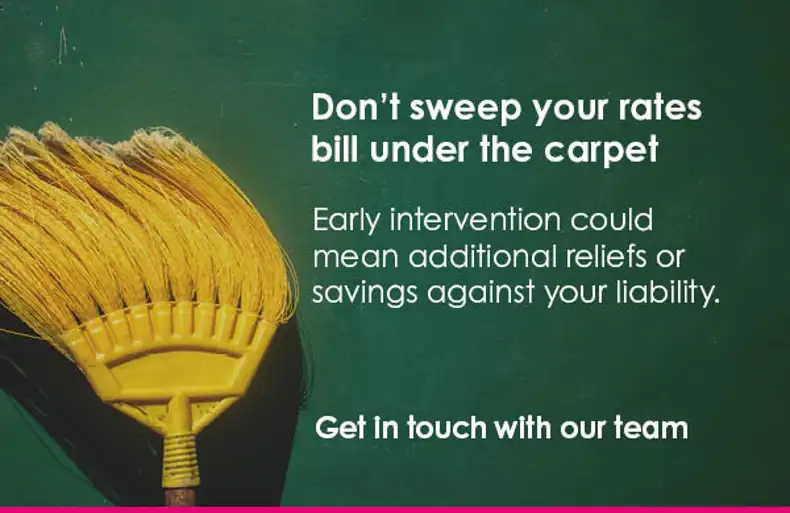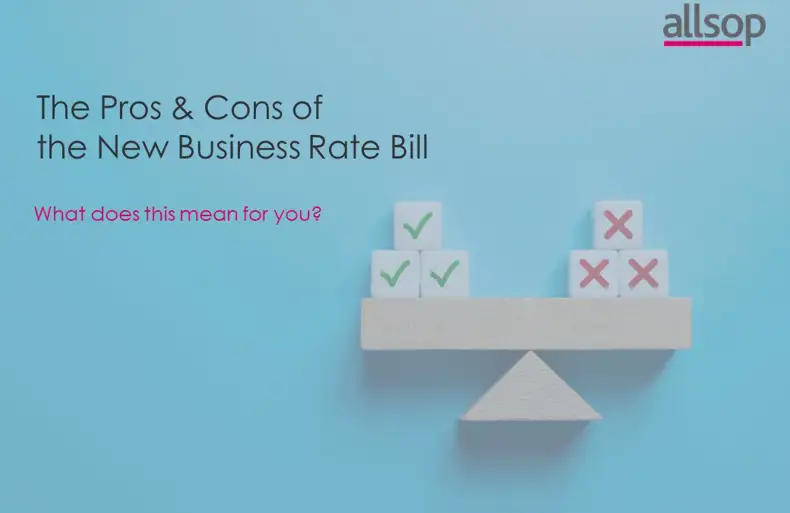The government has introduced a number of measures to give support to businesses through the period of disruption caused by COVID-19. In this article we will set out the measures taken and how they will apply to businesses in England.
Business Rates Relief
The main relief granted by the government is a 12 month exemption from rates on most occupied retail, leisure and hospitality properties for the 12 months commencing on 1 April 2020. There is no Rateable Value limit on the relief and ratepayers that occupy more than one property will be entitled to relief for each of their eligible properties.
Which properties will benefit from Business Rates Relief?
Set out below are the broad categories of occupied properties which are being granted the rates relief, at the time of writing in early April:
- Shops, restaurants, cafés, drinking establishments, cinemas and live music venues
- Estate agents, lettings agencies and bingo halls
- Properties used for assembly and leisure
- Hotels, guest and boarding premises and self-catering accommodation
- Privately run nurseries which are on Ofsted’s EYR and provide care and education for children up to 5 years old.
Detailed guidance has been issued to assist the identification of qualifying properties within these broad categories. The ultimate decision however, as to whether to grant the relief, is made by the local council.
There are various exclusions to the above which include banks and building societies, medical services (eg dentists, vets) and professional services (eg. accountants, financial advisors) as well as generally properties that are not reasonably accessible to visiting members of the public.
To qualify for the relief the property should be wholly or mainly being used for the above qualifying purposes. This is a test on the use of the property rather than occupation. Therefore, properties which are occupied but not wholly or mainly used for the qualifying purpose will not qualify for the relief.
To qualify for the relief the property must be occupied although the government have made it clear that properties which have closed temporarily due to the government’s advice on COVID-19 should be treated as occupied for the purposes of this relief.
Retail, Hospitality and Leisure Grant fund
The government has also introduced the Retail, Hospitality and Leisure Grant (RHLG). This will give additional assistance to some of the businesses in the retail, leisure and hospitality sectors who qualified for the 12 months rates exemption.
Qualifying properties in these sectors with a Rateable Value LESS than £51,000 will also be eligible for a grant of up to £25,000. There are various detailed qualifying criteria.

Small Business Grant Fund
In order for the government to reach smaller companies in other sectors, a grant has been drawn up to assist small businesses. Qualifying ratepayers will be eligible for a grant of £10,000.
Which properties will not get relief
Although significant rates relief is being given to those in the retail, leisure and hospitality sectors, many ratepayers will not receive any relief. These include those ratepayers of:
- Empty properties – which were empty prior to COVID-19
- Other properties which cannot realistically be occupied but receive no relief e.g. colleges, universities and office occupiers
As a result a landlord paying rates on an empty shop is not being granted any relief from business rates. Many sectors are aggrieved at not being granted any relief and believe the challenges they are facing are comparable to those in the retail, leisure and hospitality sectors.
Rates appeals
There are many instances where the impact of the COVID-19 and the government measures taken to limit the impact will warrant rates appeals seeking a temporary rates reduction. This may enable some relief from rates for those ratepayers who do not qualify for the 12 months rates holiday.
An appeal could be warranted for example on an office in a location where the main tube station has shut and all the local shops, cafés and restaurants have closed.
There will be many situations where a ‘Material Change in Circumstances’ appeal is potentially warranted although these need to be considered on an individual basis due to the complex rules relating to such appeals. These appeals are time sensitive and would require immediate professional rating advice and action whilst the property is being affected.
Empty property
It seems owners of empty property have drawn the short straw, being completely excluded from government support. There are however certain existing provisions in the rating regulations which could in certain circumstances enable a claim to be made for rate relief. At the time of writing, local and central Government have not published any guidance for those affected – but these are rapidly changing circumstances and seeking professional advice early on could prove critical later down the line.
Redevelopment schemes
For those property owners who are in the midst of a redevelopment scheme and are still paying rates bills, there is legal argument that no rates are payable – even if you have had to ‘down tools’ due to COVID-19.
If the property in its current state is not capable of occupation and a scheme of works has started, challenges could be made to both the local council and the Valuation Office, using current case law and regulations. This would likely result in additional reliefs or exemptions, and the property being taken out of the rating list from the start of refurbishment – meaning significant backdated refunds for the property owners.
It is recommended that advice should be sought immediately for those developments affected by COVID-19.
2020/21 rates bills
In summary, although the government has acted quickly to provide the above schemes to assist businesses it is up to local councils to deliver them. Many of the rates bills for 2020/21 were already issued prior to the new measures being announced. Due to this, it is imperative to seek advice on your rate bills as there is no certainty these will be accurate. It is not unusual to see incorrect dates, erroneous liability amounts and wrongly applied reliefs (or, no relief applied at all, in many cases).
As ever, the earlier you can seek advice, the better. Although appeals and relief claims can normally be backdated, advice sought early on will ensure the best possible outcome is secured.




